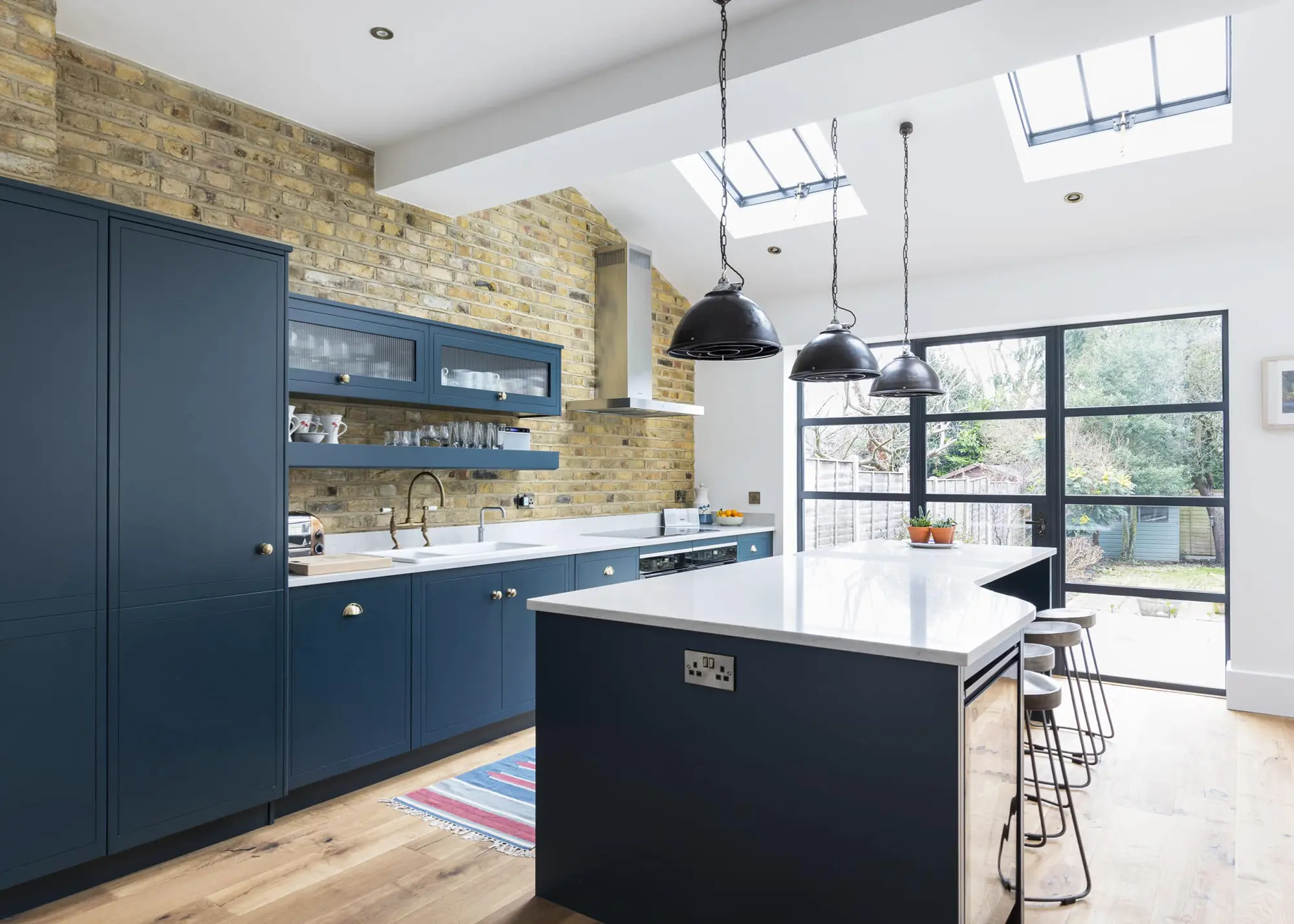Adding a kitchen extension can be an exciting project, allowing you to gain much-needed space and functionality. However, it’s normal to wonder — how long will it actually take from start to finish? Credit: Self-Build.co.uk On average, a kitchen extension takes 3-6 months to complete from start to finish. This includes the planning and design phase, obtaining permissions and approvals, and the actual build time of around 8-12 weeks for a single-storey extension. Larger or more complex projects can take longer. Based on typical timescales, we estimate that most standard single-storey kitchen extensions will be completed within 3-4 months. While every project is unique, this gives a reasonable expectation for how long the process takes from start to finish, allowing sufficient time for planning, approvals and construction. The actual build itself usually takes 2-3 months. The planning permission process is one of the biggest factors in determining your extension timeline. On average, it takes around 3 months to get approval for a single-storey extension. Larger or double-height rear extensions may take up to 6 months. Here are some key things that can affect the planning permission timeframe: Be prepared for planning permission to take anywhere from 8 to 16 weeks. Choose an architect or builder familiar with your area’s specific planning process to help expedite this crucial first step. Once planning permission is secured, you can move on to the actual build. For a single-storey kitchen extension, expect construction to take around 3-5 months. Here’s a rough timeline: For a larger two-storey extension, construction may take 5-7 months due to the extra complexity. Be aware delays can happen due to weather, materials supply, or discovering unexpected structural issues. Choose an experienced builder who can give you a realistic timeline estimate. Factor in contingency weeks to account for potential delays. With good planning and communication, your dream kitchen extension will be ready to enjoy before you know it! Though most projects run smoothly, there are a few common factors that can lead to delays with your kitchen extension: A good builder will include contingency weeks in their timeline estimate. Maintaining flexibility in your own schedule is wise too. With good project management and patience, most delays can be overcome. Though delays are often unavoidable, there are some things you can do to help keep your kitchen extension moving along: With thorough planning, proactive communication, and flexibility, it’s possible to complete your kitchen extension in a timely manner. The key is working closely with your builder to stay ahead of potential issues. The timeline for your kitchen extension may also depend on where you live. Factors like planning restrictions, builder availability and weather conditions can vary across the UK. For example, if you’re in a conservation area or listed building, extra permissions could add delays. Rural spots may have limited builder options, while cities like London require meticulous logistical planning for access and materials. Northern areas of the UK tend to have colder, wetter weather, meaning work may halt for long stretches in winter. Conversely, builders in southern regions need to account for warmer temperatures when planning tasks like laying concrete. Examining typical timescales in your particular area is wise. Connecting with neighbours who have done extensions gives you insight into local factors that could influence your schedule. While individual project needs make it impossible to pinpoint an exact timeframe, understanding your location’s quirks helps set realistic expectations. With thoughtful planning and flexibility, your builder can work efficiently despite regional variables. In the UK, a typical kitchen extension takes 3-6 months from start to finish, including the planning and approval process. The build itself is usually around 8-12 weeks. For a straightforward single-storey kitchen extension with no major structural work, the build time is typically 8-12 weeks. The full process including planning permission can take 3-4 months. The average cost of a kitchen extension in the UK is between £15,000 and £30,000 for a single-storey extension. This works out at around £2,000 per m2. The final cost depends on size, specifications and location. In summary, how long does a kitchen extension take? On average, a straightforward single-storey kitchen extension takes around 3-4 months from start to completion in the UK. This includes the planning and approval process as well as the 8-12 week build time. Larger or more complex extensions may take up to 6 months. The average cost is roughly £2,000 per m2. Key factors determining the timescales and costs include the size, design and specifications.
How Long Does a Kitchen Extension Take?

Key Points
Our Opinion
How Long Does Planning Permission Take?
Typical Construction Timeline
Factors That Can Delay a Kitchen Extension
Ways to Expedite the Process
Location-Specific Considerations
FAQ
How long does it take to do a kitchen extension in the UK?
How long does a single-storey kitchen extension take?
How much does the average kitchen extension cost in the UK?
Conclusion
